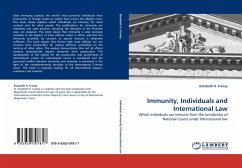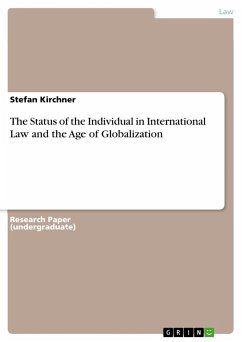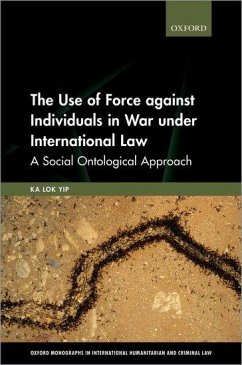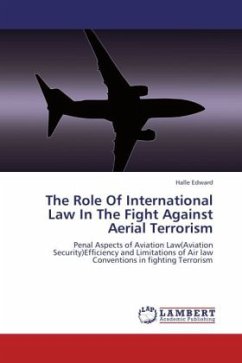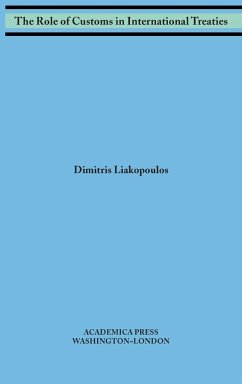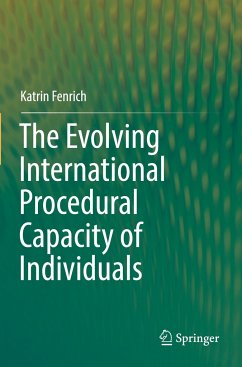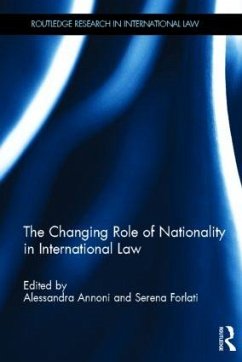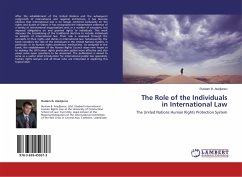
The Role of the Individuals in International Law
The United Nations Human Rights Protection System
Versandkostenfrei!
Versandfertig in 6-10 Tagen
27,99 €
inkl. MwSt.

PAYBACK Punkte
14 °P sammeln!
After the establishment of the United Nations and the subsequent outgrowth of international and regional institutions, it has become obvious that international law is no longer centered exclusively on the rights and duties of States. It has recognized the independent existence of a variety of international organizations and, in a number of situations, has imposed obligations on and granted rights to individuals. This work discusses the broadening of the traditional doctrine to include individuals as subjects of international law. Their role is reviewed through the concepts of their rights and ...
After the establishment of the United Nations and the subsequent outgrowth of international and regional institutions, it has become obvious that international law is no longer centered exclusively on the rights and duties of States. It has recognized the independent existence of a variety of international organizations and, in a number of situations, has imposed obligations on and granted rights to individuals. This work discusses the broadening of the traditional doctrine to include individuals as subjects of international law. Their role is reviewed through the concepts of their rights and duties in international law. Subsequently, the book considers the role of the individuals in the United Nations System, in particular, in its human rights protection mechanisms. As analyzed in the book, the establishment of the Human Rights Council raises new hopes as to making the UN human rights protection system more effective and also poses some open questions to be answered. The publication is aimed to serve as a useful small introduction for international public law specialists, human rights lawyers and all those who are interested in exploring this topical issue



